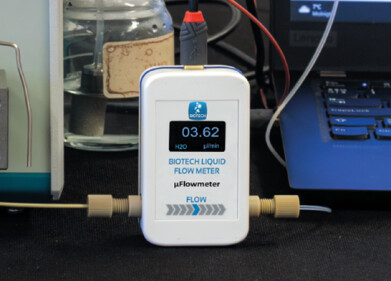HPLC, UHPLC
Does Insulin Need to Be Refrigerated? - Chromatography Explores
Feb 21 2021
Insulin is made naturally in the pancreas. It is a hormone that helps your body to use the glucose or sugar for energy. But some people get diabetes which means they cannot control or regulate the level of sugar in the blood and it can become dangerously high. This is diabetes and it is a lifelong condition. There are different types of diabetes and some conditions are insulin dependent meaning that people need to take insulin as part of their treatment.
Insulin must be injected into the body at certain times and frequencies depending on the patients diet and physical activity. Like many medicines – like the Pfizer/BioNTech and Oxford/AstraZeneca Covid-19 vaccines – insulin has, according to pharmacological protocols had to be kept cold. Whilst this might not be too much of a problem in the developed world, in some areas of the world like sub-Saharan Africa, not every house has a fridge. Read on to see how chromatography could help diabetes patients in warmer climes.
Insulin storage protocols – hot or not
Type 1 diabetes can have serious consequences for suffers including coma, blindness, and death. It is caused when the body’s immune system attacks and destroys the cells that produce insulin. We’re still not sure what causes type 1 diabetes and everyone who suffers from type 1 diabetes needs insulin to help keep blood sugar levels within an acceptable range.
The current pharmaceutical protocol requires insulin to be stored at between 2° and 8°C until it is opened. Then it can be stored at 25°C for a few weeks. But in refugee camps and some households in hot parts of the world like sub-Saharan Africa, the daily temperatures are significantly hotter than this. Thus, people with diabetes must travel to hospital everyday just for a routine shot of insulin. A team comprised of researchers from Médecins Sans Frontières (MSF) and the University of Geneva (UNIGE) joined together to test insulin storage in real conditions ranging from 25° to 37°C.
Chromatography explores the hot insulin
An MSF team at the Dagahaley refugee camp in Kenya reproduced household conditions in a laboratory with temperatures fluctuating between 25° to 37°C. They kept insulin vials for four weeks under these conditions along with control insulin vials kept refrigerated. The team used high-performance liquid chromatography to analyse the insulin. New technologies in HPLC analysis are discussed in the article, Experience and Applications of a New Portable HPLC Machine.
The research shows that all the insulin vials stored at the test temperatures recorded a potency loss of just 1%, like those kept in the fridge for four weeks. In a press release from UNIGE, Professor Scapozza said “The regulation on pharmaceutical preparations allow a loss of up to 5%, so we are well below that.” The analysis also showed that the insulin activity was fully maintained and so was fully usable. The results provide evidence that insulin storage settings can be changed in low-resource settings.
Digital Edition
Chromatography Today - Buyers' Guide 2022
October 2023
In This Edition Modern & Practical Applications - Accelerating ADC Development with Mass Spectrometry - Implementing High-Resolution Ion Mobility into Peptide Mapping Workflows Chromatogr...
View all digital editions
Events
ACS National Meeting - Fall 2024
Aug 18 2024 Denver, CO, USA
Sep 04 2024 Chiba, Tokyo, Japan
Sep 04 2024 University of Warwick, Coventry, UK
Sep 10 2024 Rockville, MD, USA
Plastics Recycling World Expo Europe
Sep 11 2024 Brussels, Belgium














